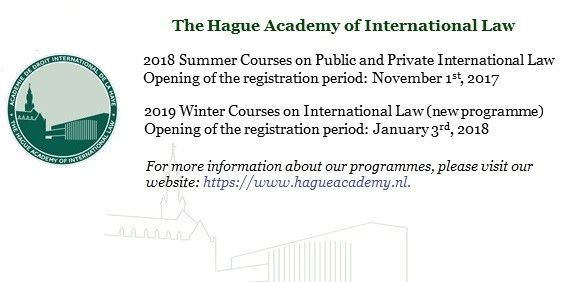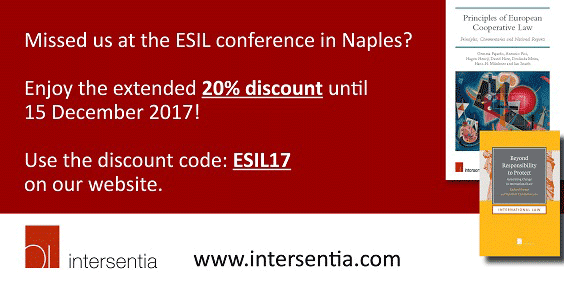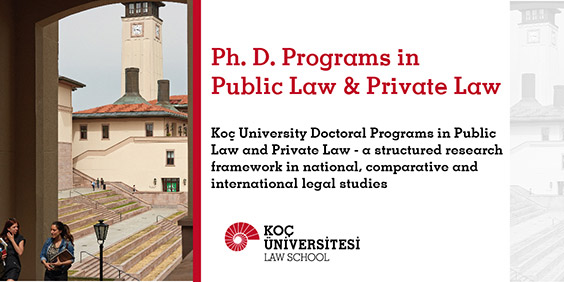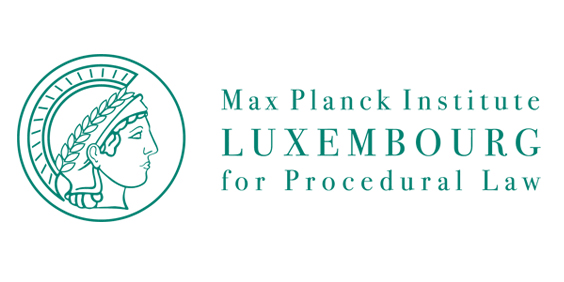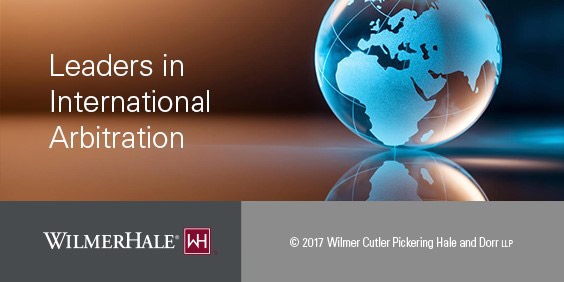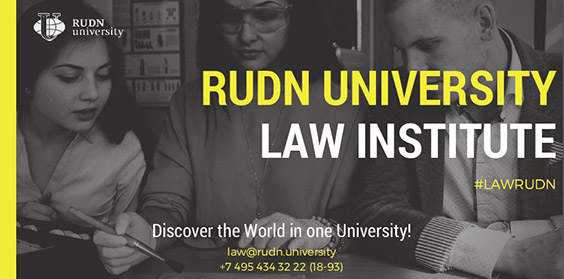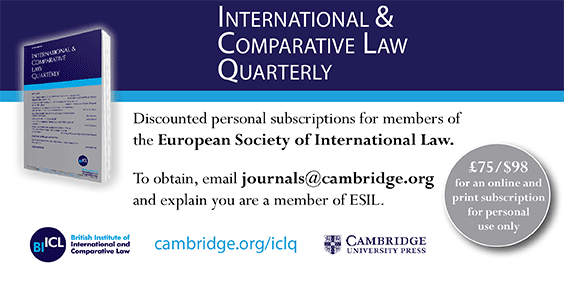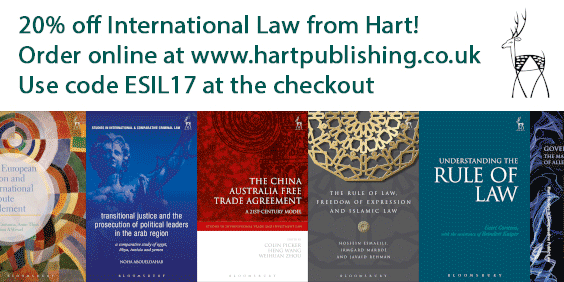ESIL Newsletter: October 2017

In this issue
- President’s Message
- Guest Editorial: Nationalised vs. Denationalised Approaches to International Law
- ESIL SSRN Papers
- ESIL Reflections
- 2018 ESIL Annual Conference
- 2018 ESIL Research Forum
- Other forthcoming ESIL events
- News from Interest Groups

 1. President’s Message
1. President’s Message
Luis M. Hinojosa-Martínez
At the 13th ESIL Annual Conference in Naples in September 2017, I had the honour of taking over the presidency of the European Society of International Law. I am grateful to my fellow members of the Board for electing me as President of this vibrant learned Society. It is a true privilege to work for ESIL.
The Annual Conference in Naples (6-9 September 2017) was attended by over 500 participants, a new record in the annals of our Society. Apart from being a challenge successfully met by Massimo Iovane, Fulvio Palombino and the rest of their organizing team, this figure shows ESIL’s vitality and its attraction as a hub for the study and debate of international law. We count among our members internationalists from more than 100 countries, a diversity that enriches the discussions at ESIL’s numerous events. Twelve ESIL Interest Groups organized scientific events on 6 September in Naples showing the diversity and energy of our Society.
The Executive Committee of the Society was renewed in Naples. André Nollkaemper (former President) and Anne van Aaken (former Vice-President) ended their terms on the Committee but will continue to serve the Society as Board members; I can only praise the professionalism, passion and efficiency with which they both serve the Society. The three Vice-Presidents are now Christina Binder, Marko Milanovic and Fay Pazartzis, and Başak Çalı continues as Secretary-General. Another Board member, Massimo Iovane, ended his term on the Board after organizing the successful (and hugely enjoyable) conference in Naples; his experience and diplomatic skills have greatly benefited the Society’s work.
There are many established ESIL activities which will continue during my presidency but there are also many new objectives to be achieved. We aim to reinforce our relationship with other international law societies and to find ways to expand membership, particularly in countries in the periphery of Europe. The Society should look for means to promote core European values (democracy, rule of law, human rights) without getting involved in politics and we should continue to open up our Society to the new generation of researchers and to practitioners. We would like to create a teaching corner on the Society’s website to foster the exchange of teaching materials among the members.
Many other ideas for the further development of the Society will come from our members. You are always welcome to make suggestions to the Board: all the members of the Board are open to new ideas that can benefit ESIL and its members. Please contact us at any time.
I am looking forward to meeting you at a future ESIL event,
Luis M. Hinojosa-Martínez
hinojosa@ugr.es

 2. Guest Editorial: Nationalised vs. Denationalised Approaches to International Law
2. Guest Editorial: Nationalised vs. Denationalised Approaches to International Law
Anthea Roberts, Associate Professor, School of Regulation and Global Governance (RegNet), Australian National University
Should the teaching of international law be, in its broader orientation, “internationalist” or “nationalist”? This was a question asked by the final report of the ILA’s Committee on the Teaching of International Law*. It is also a question I consider in my new book Is International Law International? (OUP, 2017) given how significantly international law textbooks and casebooks differ on this issue. Some present a highly denationalised approach to international law that consciously downplays national sources and perspectives. Others clearly situate international law within the foreign relations law of their state, focusing on how international law is received into, and approached by different actors from, their state. So which approach is better? And what do students gain or lose through each approach?
Textbooks and casebooks in different states often take very different approaches to this issue. In aggregate, the US casebooks take by far the most nationalised approach, whereas others like the UK and Chinese textbooks are significantly less nationalised. Consider, by way of illustration, the word clouds in Figures 1 and 2 below of the most frequently cited cases in one of the leading US casebooks (Carter & Weiner) and one of the leading UK textbooks (Evans). Both books are called “International Law,” yet their content and focus differ radically. The US one is chock-full of domestic US cases and has a strong emphasis on US foreign relations law. The UK one is packed with cases from international courts and tribunals, with UK domestic cases largely fading into the background (subject to a few notable exceptions like Pinochet).
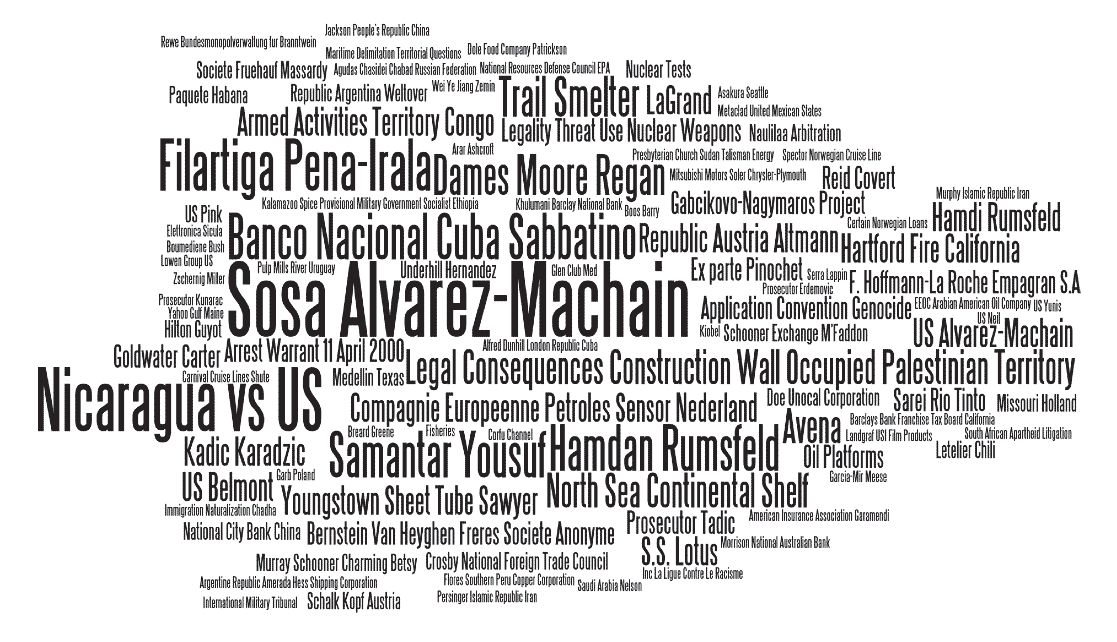
 Figure 1: Word Cloud of Cases in a major US International Law Casebook (Carter & Weiner)
Figure 1: Word Cloud of Cases in a major US International Law Casebook (Carter & Weiner)
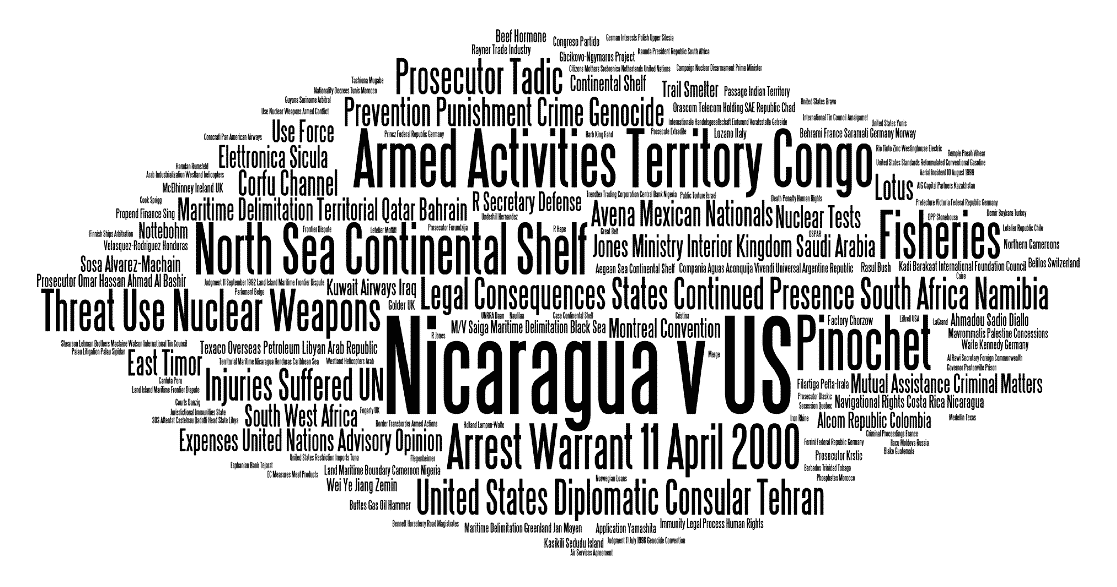
 Figure 2: Word Cloud of Cases in a major UK International Law Textbook (Evans)
Figure 2: Word Cloud of Cases in a major UK International Law Textbook (Evans)
This divergence does not just appear among books from different states. It also appears in books from the same state at different points in time. For instance, a generation ago, Finland’s leading international law textbook was Erik Castrén’s Suomen kansainvälinen oikeus (Finland’s International Law), which took a distinctly nationalised approach and one with a heavy focus on Finland’s interaction with the Soviet Union. Now, Finnish students read Kari Hakapää’s Uusi kansainvälinen oikeus (New International Law), which sits comfortably within the wider European genre of textbooks that downplay national perspectives and seek to present most of the materials from the viewpoint of the “geographical and historical nowhere” or from the perspective of the “international community.”**
Taking a denationalised approach is helpful in trying to disrupt national assumptions and biases in one’s approach to international law. It helps to give students a sense that their state is but one state within a broader international field. It inoculates students against assuming that their state’s approach to foreign relations is the same as the international law approach on any given issue. But being too denationalised may fail to give students a real feel for how international law is received into, and interacted with by, their own state. It risks making international law feel detached from and irrelevant to local conditions and concerns. It may result in students becoming well versed in foreign, international and transnational approaches, whilst learning little about the foreign relations law of their own state.
There is no perfect way to resolve this tension. Perhaps the best answer is to try to strike a balance between the two approaches, either within a given book or across books within a given state. Either way, it is imperative for textbook writers and teachers to be clear about which approach they are adopting and what that approach reveals and obscures. Although there is room for focusing on international law and foreign relations law, international law scholars and teachers need to be careful not to confuse one with the other.
————
* Int’l Law Ass’n, Hague Conf., Comm. on the Teaching of Int’l Law, Final Report 6 (2010).
** Martti Koskenniemi, The Case for Comparative International Law, 2009 Finnish Y.B. Int’l L. 1, 2.
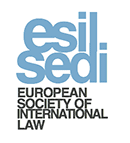
 3. ESIL SSRN Papers
3. ESIL SSRN Papers
The SSRN papers of the 2017 ESIL Research Forum ‘The Neutrality of International Law: Myth or Reality?’ ( 30-31 March 2017, Granada) are now online.
The ESIL SSRN Paper Series features papers presented at various ESIL research events. The current editors of the SSRN series are Christina Binder, Pierre d’Argent and Photini Pazartzis.
4. ESIL Reflections
ESIL Reflections offer up-to-date reflections on current issues in international law. The Reflections are now in their fourth year, covering a wide range of topics relating to current developments in international law and practice as well as theoretical reflections in a way that is relatively accessible to non-experts. The aim is to foster discussion between ESIL members and international law scholars and practitioners more generally – in Europe, but also beyond. ESIL Reflections are published monthly on this website and distributed freely to ESIL members.
The editors are Samantha Besson, Jean d’Aspremont (editor-in-chief), Jan Klabbers and Christian Tams. ESIL Members who have an interest in contributing are encouraged to do so. Please contact Jean d’Aspremont if you would like to contribute.
Latest publications:
- The Secret History of Successful Rebellions in the Law of State Responsibility by Kathryn Greenman
- Global Experimentalist Governance and Human Rights by Gráinne de Búrca
- The Ethics and Empirics of Double Hatting by Malcolm Langford, Daniel Behn, and Runar Hilleren Lie
- ESIL Reflection: States’ Positive Obligations to Eradicate Domestic Violence: The Politics of Relevance in the Interpretation of the European Convention on Human Rights by Sara De Vido

 5. 2018 ESIL Annual Conference
5. 2018 ESIL Annual Conference
The 14th Annual Conference of the European Society of International Law will be held at the University of Manchester on 13 – 15 September 2018. It will be facilitated by the Manchester International Law Centre (MILC). The overall theme of the conference is ‘International law and universality’. The CALL FOR PAPERS is now open. The deadline for the submission of proposals is 31 January 2018.
Note: Pre-conference ESIL Interest Group events will be held during the morning of Thursday 13 September. More information here.

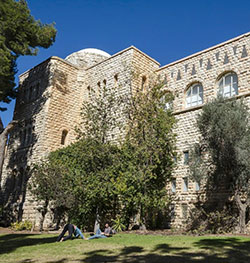 6. 2018 ESIL Research Forum
6. 2018 ESIL Research Forum
The 2018 Research Forum ‘International Law in Times of Disorder and Contestation’ will take place at the Hebrew University Faculty of Law, Jerusalem, on 28 February – 1 March 2018. It will address challenges to the international legal order emanating from dynamics of disengagement from multilateral governance, a perceived erosion of support by states and other stakeholders in existing international institutions, contestation of universal values, shifts in hegemonic power at the global and regional level, and the rise in populist, antiliberal, anti-institutional and isolationist political sentiments in various regions of the world. The Call for Papers is now closed, and the programme will be available soon. For more information, please visit the website of the Research Forum.
Travel grants and carers’ grants are now available. Applications will be accepted until 30 November 2017.

 7. Other forthcoming ESIL events
7. Other forthcoming ESIL events
ESIL is a global, member-driven society, dedicated to fostering inquiry, discussion and innovation in international law, and promoting a greater understanding of the role of international law in the world today. In that respect, several ESIL events are coming up in the next few months.
ESIL-sponsored workshop in St Petersburg
St Petersburg State University together with the European Society of International Law (ESIL) and Threefold Legal Advisors LLC announce a workshop on The 1917 Russian Revolution and Its Impact on Law: International and Comparative Perspectives. The workshop will be hosted by the St Petersburg State University Law School on 21 October 2017 as part of the International Academic Forum The Great Russian Revolution: Memory and Understanding. 1917-2017.
The workshop will bring together Russian and international academics and practitioners in the field of international and constitutional law. It will mark the 100 years of the 1917 Revolution in St Petersburg – a city where the revolution started – with an international academic legal discussion about the influence of the 1917 Revolution on the development of law in Russia and elsewhere, including on the development of international law.
Registration of engaged listeners is extended until 19 October for ESIL members (please note that foreign participants may require a visa to travel to Russia).
ESIL Lecture by Olivier de Frouville
The next ESIL Lecture by Olivier de Frouville will be on 31 October 2017 at the University of Geneva. The theme of the Lecture is: ‘Le Rôle de la Société Civile dans les Organisations Internationales : Théorie(s) et Pratique(s)’.
For any questions regarding this lecture, please email edith.muerrle@unige.ch
ESIL Prague–Nottingham Symposium
On 10 November 2017, the second part of the ESIL Prague-Nottingham Symposium: Non-UN Sanctions and International Law, will be held at the Nottingham International Law and Security Centre at the University of Nottingham. The idea is to consider various aspects of sanctions adopted outside the UN context, by individual States, groups of States, regional organizations or other actors. The Nottingham event will concentrate on the effectiveness and impact of non-UN sanctions and the monitoring of such sanctions by States or non-State actors. The programme is now available.
ESIL-sponsored event / EJIL Symposium, Jerusalem
This event, on the theme of The Psychology of International Law, will take place on 9-11 January 2018 in Jerusalem. Behavioral law and economics has been successfully applied to domestic legal issues and is now widely accepted and increasingly used in public policy and regulatory design. Cognitive psychological insights have furthermore been used by international relations (IR) scholarship under the heading of political psychology. However, the latter studies do not take into account international norms and are mostly confined to individual actors and security constellations.
The Symposium will build on all those insights and explore the benefits and challenges of extending the behavioral approach to public international law: the psychology of international law. This is fruitful for the design of international institutions and treaties as well as law application and legal procedures in international law. The programme of the Symposium is available here.
ESIL-sponsored event, Rome – Call for Papers
A workshop on Hegemony in the International Order will be held on 11-12 June 2018 at the University of Rome Tor Vergata. The workshop is co-sponsored by the Transnational Theory Network (TLPT-Network), the Italian Society of Political Philosophy (SIFP) and the European Society of International Law (ESIL). The workshop will investigate the contemporary significance of hegemony in the international realm. More specifically, its aim is to assess whether and to what extent neo-Gramscian, neo-hegemonic or, alternatively, post-hegemonic forms of power help understanding law and politics in regional and global contexts. See CALL FOR PAPERS for further details. The deadline for the submission of proposals is 31 March 2018.
8. News from Interest Groups
ESIL Interest Groups are a vital part of the Society’s success and activities. A list of the groups is available on the ESIL website. Reports of recent activities and upcoming events are available in the full text of the Newsletter.
ESIL IG on International Economic Law
The ESIL IG on International Economic Law a pre-conference event in Naples on 6 September 2017 on the topic Global public goods, global commons, fundamental values: the responses of international economic law. During the full-day workshop, 11 papers were presented and discussed, with a Keynote Speech by Pavel Sturma and the Concluding Remarks by Giorgio Sacerdoti. The workshop was attended by about 60 people and was very successful. The selected workshop papers will be published in the Brill Open Law Journal.
With the support of the ESIL Interest Group on International Economic Law, the Athens Public International Law Center (AthensPIL) of the National and Kapodistrian University of Athens Faculty of Law, the French National Centre for Scientific Research (CNRS), the Research Center on Procurement Law and International Investments (CREDIMI) of the University of Burgundy, and the Faculty of Law of the University of Zaragoza organised, in the context of the Investment Law Initiative, a Colloquium on International Investment Law & the Law of Armed Conflict in Athens on 5-6 October 2017.
ESIL IG on the History of International Law
The time has come for elections to renew the Coordinating Committee of the IG on the History of International Law. If interested, please send your candidacy to esil.secretariat@eui.eu by 23 October 2017, with a short (250 max.) biographical note and a description of your plans to contribute to the work of the IG.
ESIL IG on International Human Rights Law
Following a successful workshop of the Interest Group at the ESIL annual conference in Riga in 2016, two of the co-chairs (Basak Cali and Lorna McGregor) co-edited a blog symposium entitled ‘International Human Rights Law in Times of Crisis’ on EJIL Talk! in February 2017. This symposium, which includes an introduction by Basak and Lorna and contributions by six of the papers presented in Riga is available here.
Following the practice of previous year’s, we issued a call for papers on the international human rights law perspective on the 2017 annual conference theme. We received over 50 submissions with a combination of early career and established academics. We have invited speakers to submit their papers to us as blog posts for consideration for publication on EJIL Talk!
This year, the three co-chairs are stepping down from their positions but will be available to support incoming chairs. A call for nominees to stand for election has been issued. If interested, please send your candidacy to esil.secretariat@eui.eu by 20 October 2017, with a short (200 max.) biographical note and a description of your plans to contribute to the work of the IG.
ESIL IG on International Health Law
Two major events were organised by the Interest Group on International Health Law in 2017.
The first was the Jean Monnet Summer School on Health and the Environment (co-organised with the Jean Monnet Chair in European Health, Environmental and Food Safety Law, www.jean-monnet- chair-healthy.eu), which took place at the University of Salerno from 3 to 7 July 2017 and was successfully attended by 60 students from 16 different European States.
The second was the pre- conference meeting in Naples on 6 September. In line with the conference topic, the meeting was dedicated to Health as a Global Public Good in International Law. Invited speakers were Brigit Toebes (University of Groningen), Stéphanie Dagron (University of Geneva), Pia Acconci (University of Teramo) and Makane Moïse Mbengue (University of Geneva).
Future events will be especially dedicated to PhDs and younger researchers and will include a multi- disciplinary workshop on environmental health and a two-day training session in Geneva. More information will be soon available on the IGIHL’s website which was recently completed with new sections providing links to relevant international institutions, associations, networks, research centres and research projects, and specialised journals.
The Coordinating Committee can be contacted at the e-mail address esil.igihl@gmail.com
ESIL IG on International Business and Human Rights
Following the pre-conference workshop organized in Naples on Public Values and Public Goods: How do They Live in the Intersection of Finance and Human Rights?, the PPTs and the abstracts of the participating panellists will be soon available on the website.
From this year, it is also possible for IG members to participate in the 2017 UN Forum on Business and Human Rights (Geneva, 27 – 29 November 2017) as part of the ESIL IG delegation. During the UN Forum, an informal IG meeting will take place.
We look forward to meeting you in Geneva and we invite all the IG members to contact the co-conveners with more information on events and publications on Business and Human Rights to be posted online.
ESIL IG on International Bio Law
On 27 October 2017, the ESIL Interest Group on Bio Law will hold a workshop on International Biolaw and… Interactions with Environmental, Human Rights and Health Law at the Faculty of Law, University of Málaga. This international workshop is focused on the relationship between International Bio Law and different subjects directly connected with this field of research. This workshop has two objectives: first of all, to show the interactions between International Bio Law and different areas (in particular Environmental, Human Rights and Health Law); secondly, this event will try to contribute to building bridges between ESIL Interest Groups dealing with common fields of interest. The programme of the workshop is available here.
